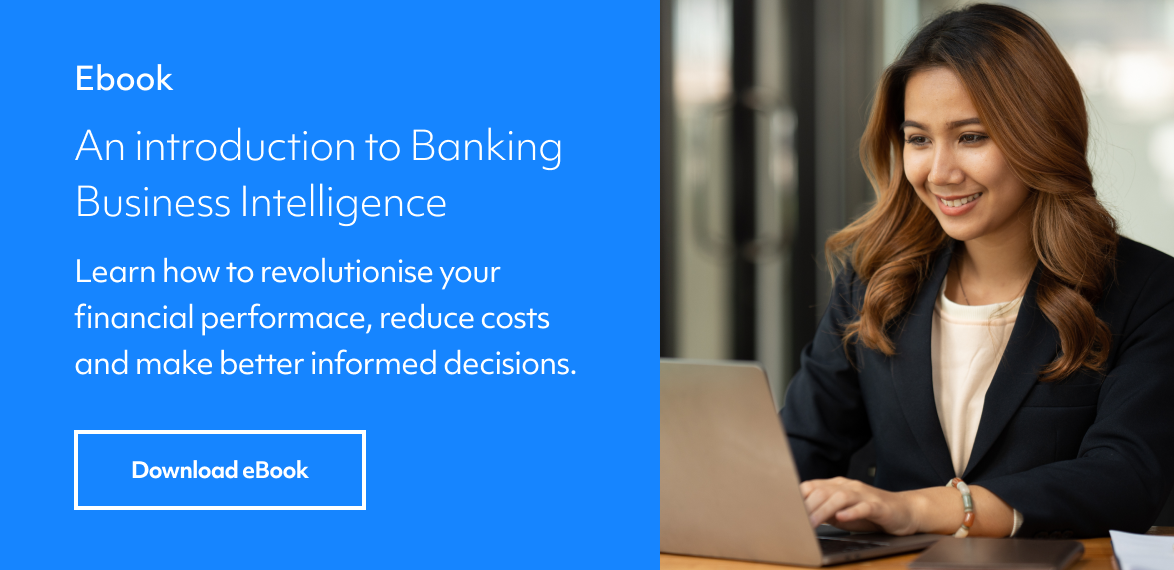Data science is increasingly indispensable to financial institutions, such as Capital One and KeyBank. It provides an unbiased approach to understanding and analysing phenomena and trends.
As more detailed data becomes available, it is becoming increasingly important that financial institutions make use of it. Banks, Credit Unions and Microfinance institutions that use business intelligence gain a better understanding of their customers and how they can best serve them.
Recent articles show that financial institutions are responding to the trend, such as Capital One's use of Information-Based Strategy to grow, KeyBank's move towards a data-driven approach, and the method and importance of determining the economic value of data.
Capital One: Exploiting an Information-Based Strategy
Capital One, one of the world's most profitable credit card issuers, has rapidly expanded by placing data at the epicentre of its business. Capital One uses Information-Based Strategy, which is defined as:
"The use of scientific testing to drive mass customization, enabling them to deliver the right product to the right customer, at the right time and at the right price." (Richard Fairbank, CEO of Capital One.)
Many banks were using traditional methods such as uniform pricing, which meant that customers were being overcharged for the service they were using.
This gap in the market allowed Capital One to use their data to offer these customers far better deals than they were currently getting. Many of the traditional banks either did not think they possessed enough data to effectively price or they believed their pricing was already fair.
This complacency in the industry left room for innovation from a new company to offer customers a better product at a better price. It is no surprise, then, that Capital One grew so quickly and captured a large share of the credit card market.
The Information-Based Strategy is applicable to many industries where there are newly vulnerable markets.
If the skills required for information-based strategies are sufficiently difficult to acquire, and if they are sufficiently general in their applicability, then Capital One should enjoy a prolonged period of profitability, exploiting a sequence of opportunities in newly vulnerable markets in other industries.
KeyBank Moves to Data-Driven Decision Making
KeyBank is another example of a business with data at the centre of company decision-making. Unlike Capital One, which was built upon the foundation of a data-driven approach, KeyBank had to adapt.
“Now all decisions have to be Net Present Value positive; someone would have to make the case in data terms. We use analytics to force discipline in how to think about the right answers for our customers and for the bank” David Bonalle
KeyBank’s commitment to data can be seen in its implementation of an Analytics Centre of Excellence, which centralises all the analytics across the bank.
Analytics has its own independent centre, instead of being buried in sections of the business and it is used in all aspects of decision-making at the bank.
KeyBank uses analytics to monitor trends and to show opportunities where resources can be best placed.
For example, with more users across all demographics using online and mobile banking, the analytics showed that resources being spent on brick and mortar stores could be better placed in the research and development of their app and online services.
As well as its Analytical Centre of Excellence, KeyBank uses consultancy firms to provide more data as well as the best ways to use this data. KeyBank worked with Booz & Company in the initiative's early stages to help retain new customers.
David Bonalle said: “By changing our approach we were able to reduce attrition by 25.1 percent versus the new-client communication approach used previously.”
KeyBank is effectively placed to continue growing, as its data-driven approach will help in generating leads, retaining customers and providing a better overall experience for the customer.
Determining the Economic Value of Data
Data has quickly become the most valuable commodity in the world. Unlike traditional currency, which is limited by transactional limits, data currency exhibits a network effect, whereby data can be used at the same time across multiple use cases, thereby increasing its value to the organisation.
However, it is hard to accurately assign economic value to an intangible asset. The value of data should be based on an organisation’s key business initiatives. While this approach will not make valuations exact, it will provide a basis by which decisions and further analysis can be made.
Organisations have an opportunity to use data to improve their decision-making. While many businesses use it as part of their decision-making processes, few fully harness the power and capability of data.
As technology moves so fast, it is often hard for businesses to effectively keep up with the latest trends and innovations.
Access to more timely, more complete and more accurate data can enable organisations to tease out more significant, material and actionable insights into their customers, products and operations - and ultimately make “better” decisions.
Not all data is created equal. Some data is more important than other data in informing the decisions that support the organisation’s key business initiative.
Consequently, it’s necessary to have a rough estimate as to what information is most important in order to guide your “data as an asset” management strategy.
Get to Grips with Your Data
Banking business intelligence helps users get to grips with their data and gives them greater insight into their business. Download our 'Introduction to Banking Business Intelligence' to learn how your financial performance can be revolutionised.




